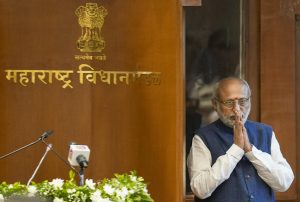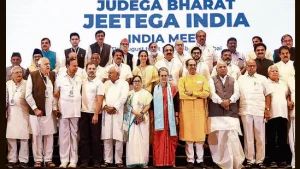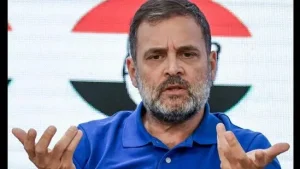New Delhi – Following CP Radhakrishnan’s decisive victory in the Vice Presidential election, Opposition leaders have launched a comprehensive analysis revealing significant concerns about vice presidential cross-voting that may have affected the final outcome. Senior non-Congress Opposition leaders concluded that at least ten votes were lost due to cross-voting or invalid voting, raising questions about party discipline and electoral strategy in India’s parliamentary system.
The examination of vice presidential cross-voting patterns emerged from internal discussions between Opposition parties, revealing concerning trends that suggest some MPs may have deviated from their party’s official stance. This analysis has prompted broader discussions about maintaining party unity during crucial constitutional elections and the challenges of secret ballot voting systems.
CP Radhakrishnan’s Higher-Than-Expected Victory Margin

CP Radhakrishnan secured his position as the 15th Vice President of India by obtaining 452 out of 767 votes, a tally that exceeded Opposition expectations and indicated potential vice presidential cross-voting from their ranks. The margin of victory suggested that several Opposition MPs either switched sides or cast invalid ballots, contributing to the ruling party’s stronger-than-anticipated performance.
The election results showed 15 votes declared invalid while 13 MPs, including representatives from BJD, BRS, Akali Dal, and an independent member, abstained from voting entirely. This abstention pattern, combined with suspected vice presidential cross-voting, created a complex electoral landscape that favored the ruling party’s candidate beyond initial projections.
Party-Wise Analysis Reveals Specific Vote Losses


According to Opposition calculations, the vice presidential cross-voting analysis identified specific parties that lost votes during the election process. Aam Aadmi Party faced the most significant impact, with four MPs either cross-voting or casting invalid votes. The Samajwadi Party and Shiv Sena (UBT) each lost three votes, while the Nationalist Congress Party (Sharad Pawar faction) and Jharkhand Mukti Morcha lost two votes each.
However, the vice presidential cross-voting examination also revealed positive performance from several Opposition parties. DMK, Trinamool Congress, RJD, Left parties, National Conference, and smaller Opposition allies achieved 100% vote delivery according to their committed positions. Smaller parties including VCK, ASP, and Kerala Congress (Mani) demonstrated complete loyalty to the Opposition alliance.
Secret Ballot Challenges in Vote Verification
The vice presidential cross-voting investigation faces inherent limitations due to the secret ballot nature of Vice Presidential elections. Opposition leaders acknowledge that their conclusions stem from informal discussions rather than concrete evidence, as it remains impossible to definitively determine individual MP voting patterns through the confidential ballot system.
This secrecy creates ongoing uncertainty about vice presidential cross-voting incidents, making it challenging for parties to identify specific MPs who may have deviated from party lines. The situation highlights broader questions about accountability and party discipline in constitutional elections where votes cannot be directly monitored or verified.
Congressional Vote Integrity Questions


Even the Congress party, despite its disciplined reputation, faced questions regarding vice presidential cross-voting with leaders identifying one potentially doubtful vote within their ranks. This revelation underscores that no party remained completely immune to the challenges of maintaining absolute unity during the election process.
The Congress situation demonstrates that vice presidential cross-voting concerns extended beyond smaller regional parties to major national political organizations, suggesting systemic challenges in ensuring complete party discipline during high-stakes constitutional elections.
Opposition Demands for Parliamentary Reforms
Following the vice presidential cross-voting analysis, Opposition leaders presented specific suggestions to the incoming Vice President, who will assume the role of Rajya Sabha Chairman during the winter session. Trinamool Congress Rajya Sabha floor leader Derek O’Brien emphasized the need for accepting Opposition notices, ending mass suspensions, and preventing censorship of Opposition protests.
These reform demands stem partly from concerns about vice presidential cross-voting and broader issues of Opposition treatment in Parliament. O’Brien specifically questioned why Opposition protest visuals are excluded from Sansad TV coverage, with cameras focusing exclusively on Treasury Benches during proceedings.
Calls for Impartial Parliamentary Leadership


Congress MP Abhishek Singhvi emphasized that the new Vice President should transcend party politics and demonstrate impartiality in managing Parliamentary proceedings. His statement reflects Opposition hopes that concerns about vice presidential cross-voting and related electoral issues will be addressed through more balanced Parliamentary leadership.
Congress MP Jairam Ramesh invoked former President Sarvapalli Radhakrishnan’s wisdom about democracy potentially degenerating into tyranny without allowing Opposition groups to criticize government policies fairly, freely, and frankly. This historical reference connects current vice presidential cross-voting concerns to broader constitutional principles.
Constitutional Rights and House Panel Scrutiny
The Opposition’s post-election analysis extends beyond vice presidential cross-voting to encompass broader Parliamentary reform demands. Leaders emphasized that MPs must be allowed to exercise their constitutional rights while more bills should undergo House panel scrutiny to ensure comprehensive legislative review.
These reform proposals emerge from the recognition that electoral integrity issues, including vice presidential cross-voting, reflect deeper systemic challenges in maintaining democratic norms and ensuring that Parliamentary procedures serve both majority governance and Opposition representation effectively.
Future Implications for Electoral Strategy
The detailed analysis of vice presidential cross-voting patterns will likely influence Opposition strategy in future constitutional elections. Parties may implement stronger internal monitoring mechanisms and develop enhanced communication strategies to prevent vote losses during critical electoral processes.
Understanding these voting dynamics becomes crucial for maintaining Opposition unity and ensuring that future constitutional elections accurately reflect intended political alignments rather than being affected by undisclosed cross-voting patterns that undermine stated party positions.

